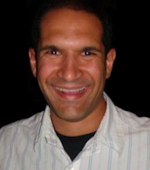Although a vast majority of U.S. homes have smoke alarms, a recent study shows that they sounded less than 50 percent of the time in reported home fires.
The results of the study were shared by Marty Ahrens from the NFPA earlier this week at the Suppression and Detection Research and Applications Symposium (SUPDET) in Orlando, Fla.
The study, which focused on data compiled between 2003 and 2006, found that smoke alarms sounded in only 47 percent of reported home fires and in only 37 percent of home fire deaths. The alarms were present but failed to operate in nine percent of the reported fires and 23 percent of the deaths.
When the fire was large enough to activate the alarm, hardwired devices faired the best, activating 91 percent of the time versus only 75 percent of the time for those powered by batteries alone.
The study showed that power source issues were the leading reason alarms fail to operate.
NFPA 72 -- National Fire Alarm Code -- requires smoke alarms in new construction to be hardwired with battery backup, yet the 2007 American Housing Survey found that smoke alarms in 37 percent of homes less than five years old were powered by batteries only.
"We may think codes are being universally applied but not every jurisdiction adopts them or has the ability to enforce them," she said.
As more houses have been hardwired, Ahren said that newer problems have popped up.
"It looks like the fire service is having a harder time finding the cause for failure among hard wired alarms," she said.
She also stressed the importance of interconnected alarms and said that even though they have been required by NFPA 72, they are still not the trend.
"Interconnected smoke alarms are not as common as we may think."
She said that while almost all homes have smoke alarms, few have the recommended coverage needed.
"Coverage matters a great deal in smoke alarm performance," she said. "In a lot of cases they did not sound, it was because not enough smoke reached the alarm."
The study also found that a mass majority of fires are handled without the assistance of the fire department. Of the estimated 7.4 million house fires that occur each year, 97 percent go unreported.
Ahrens said that this is a testament to the fact that in many cases, smoke alarms do their jobs.
She said that fire service and the fire prevention industry still has to focus on problem areas. Not surprisingly, the most common place a fire begins in the home is the kitchen.
"There is a tendency to think that when people are cooking, they are right there," she said. "This is still a problem and is why we have to continue to worry about kitchen fires."
More focus also has to be put on high risk groups, according to Ahrens. This includes people over 65 -- which make up 12 percent of the population -- and the disabled.
"We don't expect smoke alarms to be able to help people incapable of self preservation," she said, noting that more has to be done to keep those groups safe.
The study concluded that while smoke alarms cannot control or extinguish a fire, the early alert they provide is important, even when suppression devices -- such as sprinklers -- are present.
"The fire protection community is always looking for ways to prevent deaths," she said. "Just by having a working smoke alarm, the homeowner cuts the chances of dying in half."

Paul Peluso | Staff Writer
Paul Peluso is a Firehouse.com staff writer and has worked for the Web site since 2006. Previously, he worked as a reporter for several community newspapers located in the suburbs of Baltimore, Md. Since joining the newsteam, Paul has covered various fire service issues including fire sprinklers, grants, line of duty deaths and technology. While he started out at the Beltsville, Md. office, he has since moved to Florida where he works out of his home office in Tampa.





